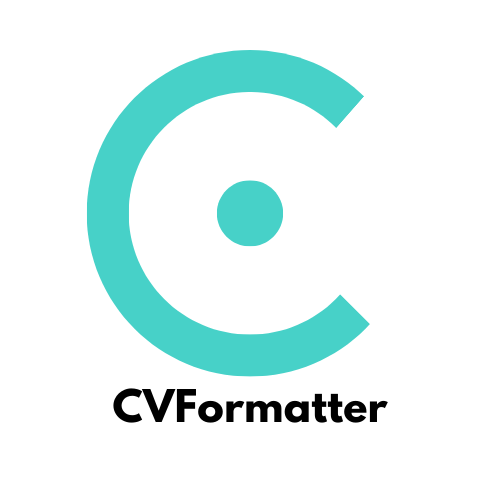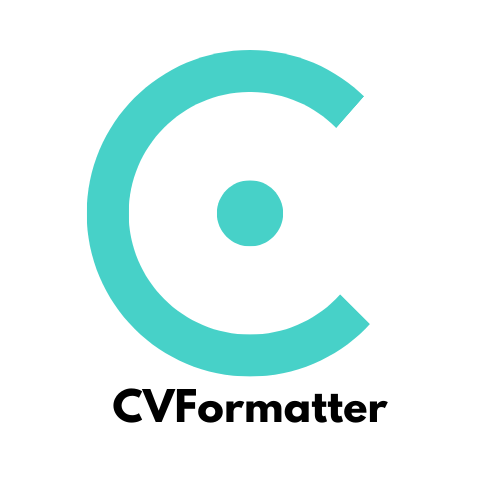What makes a good recruiter

What makes a good recruiter? It’s someone who brings together the right skills, habits, and mindset to thrive in this fast-paced role. You need to communicate clearly, understand your industry, and build strong relationships. Technology can also be your best friend. Tools like applicant tracking systems or chatbots save time, improve candidate engagement, and even help you find hidden talent. By staying organized and ethical, you’ll not only meet hiring goals but also create lasting connections. A successful recruiter knows how to adapt, grow, and make every interaction count.
Key Takeaways
Knowing the industry well is important. Learn about job trends and hiring needs to find the best candidates.
Great communication skills are key. Write clear job posts and talk to candidates in a friendly way.
Make strong connections. Be personal and follow up often to build trust with candidates and hiring managers.
Use helpful recruitment tools. Try tools like tracking systems to make work easier and faster.
Always aim to grow. Listen to feedback and try new tools to get better at recruiting.
Deep Industry Knowledge
To become a successful recruiter, you need to know your industry inside and out. This knowledge helps you connect with the right candidates and make informed decisions. Let’s break it down.
Understanding the job market
Researching industry trends
The job market is constantly evolving, and staying ahead of the curve is crucial. You should keep an eye on trends like:
Skill-based hiring, which focuses on what candidates can do rather than their degrees. This approach promotes diversity and addresses skill shortages.
The rise of AI in recruitment, which automates tasks like resume screening and interview scheduling.
A growing emphasis on soft skills like emotional intelligence and adaptability, especially in hybrid work setups.
Increasing demand for remote work options, with many companies adopting hybrid or fully remote models.
By understanding these trends, you can tailor your strategies to meet both candidate and employer expectations.
Staying updated on hiring demands
Hiring demands can shift quickly, especially in industries influenced by technology. You should regularly research which roles are in high demand and identify any skills gaps. For example, tech advancements often create a shortage of qualified candidates, making it harder to fill certain positions. Staying informed ensures you’re always prepared to tackle these challenges.
Knowing the roles you recruit for
Understanding job descriptions and requirements
A clear understanding of job descriptions is essential. However, this can be tricky when teams are lean, and budgets are tight. You might also face challenges like outdated job descriptions or unrealistic expectations. To overcome this, focus on identifying the core skills and qualifications needed for the role. This clarity will help you attract the right candidates.
Collaborating with hiring managers for clarity
Working closely with hiring managers is key to understanding role expectations. Best practices include:
Educating hiring managers about the recruitment process and setting realistic expectations using past data.
Scheduling regular check-ins to discuss the candidate pipeline and address any concerns.
This collaboration ensures everyone is on the same page, making the hiring process smoother and more effective.
Exceptional Communication Skills
Great communication skills are the backbone of an effective recruiter. Whether you're writing job descriptions or speaking with candidates, how you communicate can make or break the hiring process. Let’s explore what makes communication truly exceptional.
Clear and persuasive communication
Writing compelling job descriptions
A well-written job description does more than list responsibilities. It grabs attention and excites candidates about the opportunity. Start by crafting your ideal candidate profile. Think about the skills and traits that align with the role and company culture. Then, develop a compelling company narrative. Share your organization’s mission and values to help candidates connect emotionally with your brand. This approach not only attracts top talent but also sets the tone for a positive candidate experience.
Engaging candidates during outreach
Outreach is your chance to make a strong first impression. Use effective communication channels to ensure your message reaches the right audience. Social media platforms and job forums are great for targeted outreach. Personalize your messages to show candidates you’ve taken the time to understand their background. Regular updates about their application status also keep them engaged and demonstrate respect for their time.
Active listening
Understanding candidate needs and concerns
Listening is just as important as speaking. When you actively listen, you understand what candidates truly want. Ask open-ended questions to uncover their goals, concerns, and motivations. This insight helps you match them with roles that fit their needs, building trust with candidates in the process.
Building trust through empathy
Empathy is key to forming genuine connections. Show candidates you care by acknowledging their concerns and offering thoughtful responses. For example, if a candidate expresses uncertainty about a role, take the time to address their doubts. This builds trust and ensures they feel valued throughout the hiring journey.
Tip: Learning from candidate feedback can refine your communication strategies and improve the overall experience.
Exceptional communication skills set you apart as an effective recruiter. By mastering clear messaging and active listening, you’ll create meaningful connections and foster trust with candidates.
Strong Relationship-Building Abilities

Building strong relationships is at the heart of being a successful recruiter. When you nurture relationships with candidates and hiring teams, you create trust and collaboration that lead to better hiring outcomes. Let’s dive into how you can master this skill.
Building rapport with candidates
Personalizing interactions
Every candidate is unique, and treating them as such makes a big difference. Personalize your communication by referencing their specific skills, experiences, or career goals. For example, instead of sending a generic email, mention how their background aligns with the role you’re hiring for. This shows you’ve done your homework and value their time. Small gestures like addressing them by name or acknowledging their achievements can go a long way in making them feel appreciated.
Following up consistently
Consistency is key when you build relationships with candidates. Regular follow-ups keep them engaged and show that you’re genuinely interested in their journey. Whether it’s updating them on their application status or checking in after an interview, staying in touch builds trust. Use tools like applicant tracking systems to set reminders for follow-ups, ensuring no candidate feels forgotten.
Collaborating with hiring teams
Aligning on hiring goals
To work effectively with hiring teams, you need to align on recruitment goals. Start by involving key stakeholders in the goal-setting process. This ensures everyone is on the same page and committed to the objectives. Communicate these goals clearly to all team members, so they understand their roles in achieving them. Establish feedback loops to encourage two-way communication and continuous improvement. This collaboration creates a smoother hiring process and better results.
Providing regular updates and feedback
Transparency strengthens your partnership with hiring teams. Keep them informed by providing regular updates on the candidate pipeline and progress toward hiring goals. Share constructive feedback from candidates to help refine the process. For instance, if candidates frequently mention unclear job descriptions, you can work together to improve them. These updates foster trust and ensure everyone stays aligned.
By focusing on these strategies, you’ll not only build relationships but also create a collaborative environment that benefits everyone involved.
Leveraging Recruitment Technology for Efficiency

Recruitment technology has revolutionized the way you can manage hiring processes. By using the right tools, you can save time, improve efficiency, and focus on what matters most—connecting with top talent.
Using tools like CVFormatter
Automating resume formatting to save time
Manually formatting resumes can eat up hours of your day. Tools like CVFormatter simplify this process by automating resume formatting, saving you up to 80% of the time you’d typically spend. Imagine turning hours of work into just minutes! This gives you more time to focus on building relationships with candidates and clients.
Enhancing professionalism with branded templates
First impressions matter, especially when presenting candidates to clients. CVFormatter ensures every resume looks polished and professional by using your company’s branded templates. This consistency not only enhances your agency’s image but also creates a lasting positive impression on clients.
Leveraging applicant tracking systems (ATS)
Organizing candidate pipelines
An ATS helps you stay organized by customizing candidate pipelines for different roles. Whether you’re hiring for tech positions or creative roles, you can tailor the pipeline to fit your needs. This flexibility ensures you never lose track of a promising candidate.
Automating repetitive tasks
Repetitive tasks like sending follow-up emails or screening resumes can drain your energy. An ATS automates these processes, allowing you to focus on personal connections. Automation also improves candidate communication, keeping them informed and engaged throughout the hiring journey.
Feature | Description |
|---|---|
Tailors pipelines for various roles, improving adaptability. | |
Automated Candidate Communication | Sends updates automatically, enhancing engagement and professionalism. |
Advanced Resume Analysis and Matching | Matches candidates with job requirements using keyword-based parsing. |
Using social media and sourcing tools
Finding passive candidates
Social media platforms like LinkedIn are goldmines for finding passive candidates. With tools like Boolean search and AI-powered recommendations, you can identify professionals who aren’t actively job hunting but might be perfect for your role. This expands your reach and helps you find hidden talent.
Expanding your talent pool
To grow your talent pool, you need to think strategically. Build online communities where potential candidates can engage with your brand. Use hashtags to broaden your reach and post job openings on multiple platforms. These strategies ensure you’re casting a wide net and attracting diverse talent.
Tip: A strong online presence not only helps you find candidates but also showcases your company’s mission and values.
By leveraging recruitment technology, you can streamline your processes and focus on what makes you a successful recruiter—building meaningful connections and delivering results.
Effective Sourcing and Screening Techniques
Finding the right candidates starts with effective sourcing and screening. These techniques help you identify top talent and ensure they align with the role and company culture. Let’s explore how you can refine your approach.
Identifying top talent
Crafting targeted search strategies
A targeted search strategy is essential for finding the best candidates. Start by defining clear objectives for the role. What skills and qualities are non-negotiable? Next, build a strong employer brand that attracts top talent. Use diverse sourcing channels like job boards, social media, and professional networks to cast a wide net. Don’t forget to leverage data and analytics to refine your search. For example, track which platforms yield the most qualified candidates and focus your efforts there. Proactive talent pools also help you stay ahead by keeping a pipeline of potential candidates ready for future roles.
Using Boolean search effectively
Boolean search is a powerful tool for narrowing down your candidate list. By combining keywords with operators like AND, OR, and NOT, you can create highly specific searches. For instance, if you’re looking for a software developer with Python experience but not Java, you can use a query like “software developer” AND Python NOT Java. This method saves time and ensures you’re only reviewing resumes that meet your criteria.
Conducting thorough screenings
Asking the right questions
Screening interviews are your chance to dig deeper into a candidate’s qualifications. Ask open-ended questions that encourage detailed responses. For example, instead of asking, “Do you have leadership experience?” try, “Can you share a time when you led a team to achieve a challenging goal?” This approach reveals more about their skills and problem-solving abilities. It also helps you assess whether they’re a good fit for the role.
Assessing cultural fit and skills
Evaluating cultural fit requires a mix of methods. Behavioral interviews and reference checks can reveal whether a candidate shares your company’s values. Pre-employment assessments, like personality tests, provide additional insights. For technical roles, skills tests and work samples are invaluable. They show you exactly what a candidate can do. To avoid bias, use an interview scorecard to evaluate responses consistently. A holistic approach ensures you’re making informed decisions.
By mastering these sourcing and screening techniques, you’ll position yourself as a successful recruiter who consistently finds the right talent for the job.
Strong Organizational Skills
Being a successful recruiter means juggling multiple roles and candidates while staying on top of deadlines. Strong organizational skills help you manage these challenges effectively and ensure smooth hiring processes.
Managing multiple roles and candidates
Prioritizing tasks effectively
When you’re handling several roles at once, prioritization becomes your best friend. Start by identifying which positions are most urgent or critical to fill. Use tools like task management apps to create to-do lists and set reminders. This keeps you focused and ensures nothing slips through the cracks.
Note: While automation can streamline recruitment tasks, over-relying on AI might reduce personalization, which could harm the candidate experience.
Keeping detailed records
Detailed records are essential for tracking candidate progress and maintaining consistency. Use applicant tracking systems (ATS) to store resumes, interview notes, and feedback in one place. This not only saves time but also makes it easier to revisit candidate profiles when needed. Managing recruitment across time zones? Keeping organized records simplifies communication and ensures you stay compliant with varying labor laws.
Meeting deadlines and goals
Setting realistic timelines
Setting achievable timelines is key to meeting hiring goals. Involve your team in the planning process to understand task complexities. Break down projects into smaller milestones and use project management tools to assign roles and track progress. These tools also improve communication, making it easier to adjust plans when needed.
Tracking progress with metrics
Metrics are your roadmap to success. Track key indicators like candidate experience, offer acceptance rates, and recruitment funnel ratios. For example, analyzing drop-off points in the funnel helps you refine your process. Don’t forget to measure recruiter performance and first-year attrition rates to assess the quality of your hires. These insights guide you in making data-driven decisions.
By mastering organizational skills, you’ll handle multiple responsibilities with ease and meet your recruitment goals efficiently.
High Ethical Standards
Ethical practices are the foundation of successful recruitment. They not only build trust with candidates but also enhance your reputation as a recruiter. Let’s explore how transparency and confidentiality play a vital role in maintaining high ethical standards.
Transparency in communication
Being honest about job expectations
Honesty is key when discussing job roles with candidates. Misleading them about responsibilities or company culture can lead to dissatisfaction and high turnover. Always ensure job descriptions accurately reflect the role. Highlight the skills and qualifications required, and avoid exaggerating perks or opportunities. Transparency sets the right expectations and helps candidates make informed decisions.
To promote fairness, treat all candidates equally during the hiring process. Use standardized interviews and diverse panels to ensure consistency. This approach not only avoids bias but also creates a positive candidate experience, fostering trust and respect.
Providing constructive feedback
Feedback is a powerful tool for growth. When providing it, focus on being timely and specific. Use the SBI method (Situation, Behavior, Impact) to explain your observations clearly. For example, instead of saying, "You didn’t do well in the interview," try, "During the interview, your response to the teamwork question didn’t highlight specific examples, which made it hard to assess your experience."
Balance constructive criticism with positive reinforcement to encourage a growth mindset. Consistent feedback helps candidates improve and leaves them with a positive impression of your recruitment process.
Respecting candidate confidentiality
Protecting sensitive information
Candidates trust you with their personal data, and it’s your responsibility to safeguard it. Always obtain consent before sharing their information with hiring teams. Train your team on ethical data handling practices to ensure accountability. Regularly delete outdated or unnecessary data to minimize risks. These steps not only protect candidates but also comply with data protection laws like GDPR.
Transparency about how you use candidate data builds trust. Let candidates know why their information is collected and how it will be used. This openness strengthens your relationship with them and reinforces your ethical commitment.
Avoiding bias in decision-making
Unconscious bias can creep into recruitment decisions, but you can take steps to prevent it. Blind recruitment, where identifying details like names and photos are removed, is an effective way to ensure fairness. Diverse interview panels also provide a well-rounded assessment of candidates.
By focusing on skills and qualifications rather than personal characteristics, you create a fairer process. This not only improves hiring outcomes but also promotes diversity and inclusion in the workplace.
Tip: Ethical recruitment practices don’t just benefit candidates—they also enhance your brand image and attract top talent.
A Growth Mindset
A growth mindset is essential for thriving as a recruiter. It keeps you open to learning, adapting, and improving, even in a competitive environment. Let’s explore how you can cultivate this mindset.
Continuously improving skills
Seeking feedback from peers and candidates
Feedback is a goldmine for growth. Ask your colleagues for insights into your recruitment strategies. They might spot areas you’ve overlooked. Candidates can also provide valuable feedback. For example, after an interview, ask them about their experience. Did they feel the process was clear and respectful? Their input helps you refine your approach and build stronger connections.
Attending industry events and training
Staying updated is key to becoming a successful recruiter. Attend workshops, webinars, or conferences to learn about the latest trends. Industry events are also great for networking with other professionals. Training programs focused on recruitment tools or soft skills can sharpen your expertise. The more you invest in learning, the better equipped you’ll be to tackle challenges.
Tip: Set aside time each month to explore new resources, whether it’s a podcast, an article, or a short course.
Adapting to change
Embracing new tools and methods
Recruitment is constantly evolving, and staying ahead means embracing innovation. Here’s how you can adapt effectively:
Follow industry blogs and connect with thought leaders on LinkedIn to stay informed.
Join HR technology forums to discuss and learn about new tools.
Enroll in courses on AI and HR software to enhance your skills.
You can also explore automation tools to streamline tasks, engage in social recruiting to boost visibility, and use HR analytics to refine your strategies. These methods not only save time but also improve your results.
Staying resilient in a competitive market
Recruitment comes with its share of challenges. Attracting the right candidates, hiring quickly, and ensuring a good candidate experience can feel overwhelming. A growth mindset helps you stay motivated. View setbacks as opportunities to learn and improve. For instance, if a candidate declines an offer, analyze what went wrong and adjust your approach. Staying resilient means focusing on long-term goals while adapting to immediate needs.
Note: A growth mindset doesn’t just help you overcome challenges—it also keeps you inspired to achieve more.
By continuously learning and adapting, you’ll position yourself as a recruiter who thrives in any situation.
So, what makes a good recruiter? It’s a mix of skills, habits, and tools that help you thrive in this dynamic role. You need to master industry knowledge, build strong relationships, and communicate effectively. Staying ethical and organized keeps you on track, while tools like CVFormatter save time and boost efficiency. A growth mindset ensures you’re always improving. By focusing on these traits, you’ll not only excel but also make a lasting impact in the recruitment world. Ready to take your skills to the next level?
See Also
Essential Guide for New Recruiters Achieving Hiring Success
Strategies for Managing a Successful Recruitment Agency in 2025
Ten Effective Strategies to Enhance Recruitment Agency Growth
The Rise of TikTok in Recruitment for Agencies Today
Comparing Recruitment Agency Advantages and In-House Hiring for 2025


